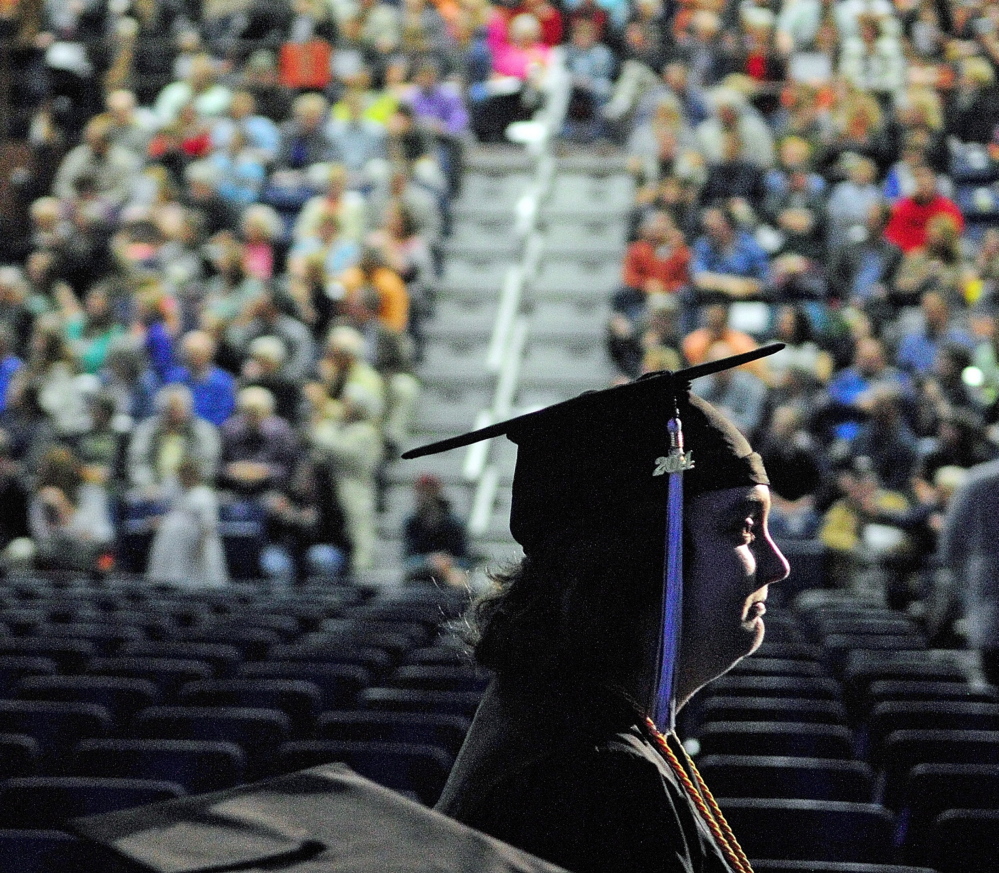Over the next few weeks, thousands of graduates will walk across the stage to receive college diplomas marking an achievement and commencing the next phase of their lives.
Today’s graduates, parents and educators might learn from Ben Braddock, Dustin Hoffman’s character in the movie “The Graduate,” about the challenges in taking that next step in life. After a successful collegiate career — track star, editor of the school newspaper and a Frank Helpingham Award Scholar — Ben returns home adrift, with no sense of direction.
Ben’s parents have high expectations for him, and a family friend offers him advice: “Plastics. … There’s a great future in plastics.” But a synthetic will not do in a situation that cries out for authenticity.
Former Yale English professor William Deresiewicz, author of “Excellent Sheep: The Miseducation of the American Elite and the Way to a Meaningful Life,” might call Ben a professional hoop-jumper, an “excellent sheep” who’s spent his life fulfilling societal expectations — acing exams, amassing extracurricular activities and building an impressive resume.
Ben’s education at a prestigious institution positioned him for worldly success, but failed to furnish him with a rich inner life, high ideals and a passion to serve others to build a better society. Ben’s collegiate education has given him no direction, no purpose in life and no vision of the world.
The purpose of college is for students to build a self, argues Deresiewicz, which involves introspection, exposure to new ideas, challenging received assumptions, nurturing intellectual curiosity and pursuing big questions about life, society and the world. It requires time to read, think and engage in conversations about a wide range of human experiences.
Students who receive a diploma without this kind of education have missed out on a critical aspect of the collegiate experience. Deresiewicz claims the elite universities have drifted away from giving students this experience. At its best, the college experience promises personal transformation. As John Henry Newman, the 19th-century author of “The Idea of a University,” observed: “A university education should ensure that students do not stand where they did, but have a new center, a new range of thoughts to which they were before strangers.”
But personal transformation is only half the collegiate story. Increasingly, college students are not privileged hoop-jumpers like Ben Braddock but first-generation students from blue-collar families who recognize that the type of jobs available with only a high school education in today’s economy block entry into the middle class.
Much has been made of the decline in manufacturing jobs that limit employment opportunities to flipping hamburgers at McDonald’s or serving coffee at Starbucks. Global competition and automation have reduced the number of manufacturing jobs, and employers in our post-industrial society are increasingly seeking a workforce with more advanced skills.
For many students, pursuing a career is the primary motivation for going to college, which is why business — for better or worse — has become the most popular major on college campuses. These students know college graduates earn on average $1 million more over a lifetime than those without the education. It’s also why students over the age of 25, weary of working dead-end jobs and hitting a ceiling without the degree, are coming back to get an education.
Today, seven out of every 10 college students work while going to school, and one in 4 both work full time and attend college full time. Working students gain practical experience, but full-time jobs often deprive students of the leisure required to explore ideas.
“The Economy Goes to College,” a 2015 report from the Georgetown Center on Education and the Workforce, found that the percentage of American workers with high-skilled wage jobs is larger today than ever before. Over a 40-year period between 1967 and 2007, high-skilled jobs increased from 21 to 35 percent of the workforce while low-skilled jobs declined from 39 to 29 percent. The fastest-growing sectors — business services, finance, health care and education — overwhelmingly require a college-educated workforce. To serve students and society, better universities might more deliberately provide all students with both transformational experiences and career preparation. Universities and employers might mutually profit from ongoing conversations about competencies to be built into the curriculum and ways to infuse educational outcomes into student work experiences. Students (and their parents) might find a focus on developing character and career preparation highly attractive.
We don’t know what kind of adult Ben Braddock became or the career he pursued, but hopefully he discovered that commencement means lifelong learning — an ongoing education in developing the self and one’s career skills to better serve society.
Joseph W. McDonnell, Ph.D., is a professor of public policy and management at the University of Southern Maine’s Muskie School of Public Service.
Send questions/comments to the editors.



Success. Please wait for the page to reload. If the page does not reload within 5 seconds, please refresh the page.
Enter your email and password to access comments.
Hi, to comment on stories you must . This profile is in addition to your subscription and website login.
Already have a commenting profile? .
Invalid username/password.
Please check your email to confirm and complete your registration.
Only subscribers are eligible to post comments. Please subscribe or login first for digital access. Here’s why.
Use the form below to reset your password. When you've submitted your account email, we will send an email with a reset code.